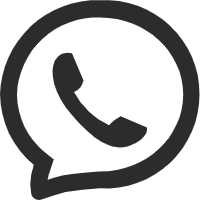Corrosive elements, high temperatures, high pressures, frequent starts and stops, and valve leaks are common characteristics of chemical plants. Whenever a valve leaks, production stops, contamination occurs, and the workplace becomes more hazardous. COVNA recognizes this and designs corrosion-resistant ball valves to withstand the harshest chemical working conditions. Their precision alloy material offers high-temperature resistance and precise sealing, ensuring reliable and leak-free valves.
In chemical plants, the interaction of various media can cause even minor seal defects to trigger catastrophic leaks.
Damaged valve stems and seats are common causes of leaks due to corrosive media in pipelines.
"Aging, high internal diameter accuracy, short maintenance intervals, and high downtime maintenance costs" all describe the core characteristics of traditional valve seals.
COVNA corrosion-resistant ball valves offer key technological advantages that set them apart from the competition.
This exceptionally corrosion-resistant, duplex alloy, known as COVNA alloy, offers industry-leading resistance to strong oxidants and hydrogen sulfide.
The all-metal hard seal design makes the valve seat unique. With no rubber sealing components, the risk of seal failure is virtually eliminated, and the valve seat is temperature-resistant up to 450°C.
This achievement is achieved through full CNC control. Dynamic tracking pressure testing guarantees a surface roughness of Ra ≤ 0.4μm. DocuTrack is a software that ensures zero leakage and is particularly suitable for surface plating.
Modular Maintenance Structure
The quick-connect, removable valve stem assembly ensures optimal operation of the piping system, allowing the stem assembly to be replaced while the piping system is operating without shutting down or disassembling the system.
Installation and Maintenance Key Points
Pre-installation Inspection
Inspect the flange surface for scratches. Open the valve fully to remove any foreign matter from the internal cavity.
Regular Lubrication
Inspect the valve packing and stuffing box every three months and apply high-temperature grease as appropriate for system conditions.
Remote Monitoring
A pressure relay monitors the pressure differential across the valve in real time to check the sealing condition.
Remote Maintenance
The valve can be remotely maintained and monitored in real time using the pressure sensor provided with the valve.
COVNA's corrosion-resistant ball valves are the solution to chemical plant leak challenges. These valves utilize the latest alloys and all-metal seal construction. COVNA provides an added layer of safety for your installation, significantly reducing maintenance costs and environmental risks.
Contact COVNA today for detailed product white papers and field-tested solutions to seal leaks in your chemical plant.









